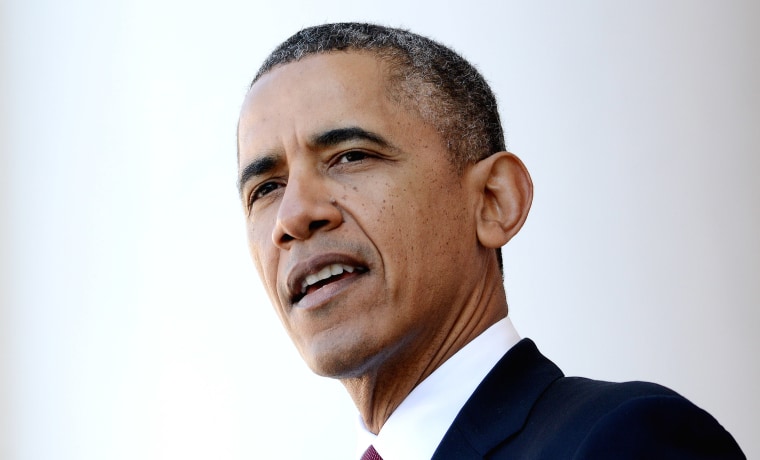With apologies behind him, President Obama is looking to some of the other pressing issues facing the nation.
Much of what occupied Congress during the first half of the year has languished, and Obama and democratic leaders have only a short time to try and forge some sort of path to passage before the midterm election machine starts up in earnest.
On Friday, Obama gave a speech in New Orleans that served as a reminder to the public that Congress still has a litany of major legislation to deal with before the end of the year and that laid out, once again, his domestic priorities. After better than expected jobs numbers and recent record highs on Wall Street, Obama once again criticized Republicans for letting the poor and middle class suffer rather than pass much-needed legislation that would fund essential programs.
"The first thing we should do is stop doing things that undermine our businesses and our economy over the past few years -- this constant cycle of manufactured crises and self-inflicted wounds that have been coming out of Washington," he said.
With the next debt ceiling deadline set to hit in January, there isn't much time. In the speech, Obama included a suggestion for the bipartisan committee currently in the midst of hashing out some sort of budget deal. "Rebuilding our infrastructure could be part of a bipartisan budget deal," he said.
While Paul Ryan, the Wisconsin Republican leading negotiations in the committe is unlikely to take his suggestion, Obama is still going to try and sell his ideas to the public. This week, the president will dispatch members of his cabinet across the country to drive home the importance of infrastructure spending on the economy.
Infrastructure projects are some of the most reliable forms of economic stimulus, and while October saw the nation add 204,000 jobs, men and women continue to drop out of the work force at an alarming rate, and more than 40 million Americans are currently in danger of not having enough to eat.
Among the cabinet officials scheduled to make appearances this week will be Labor Secretary Tom Perez, who has recently spoken out about the need to pass comprehensive immigration reform. On Friday, Perez said on CNBC that reforming the system to include more workers would provide more funding for major domestic programs like Social Security.
Even if the president and his cabinet can re-sell his domestic agenda to voters, he still faces opposition from House GOP leaders and Tea Party Senators. Immigration has been stalled for months, House Republicans are still pushing for huge cuts to programs like the Supplemental Nutritional Assistance Program, and Sen. Patty Murray, D-WA, has been unable to secure any concessions from Republicans on the budget conference committte to increase revenues.
The Senate is widely expected to debate the massive defense spending bill next week; House Majority Whip Kevin McCarthy, R-CA, said that the House will not vote on immigration reform this year. Only 13 legislative days remain on the Congressional calendar this year.
